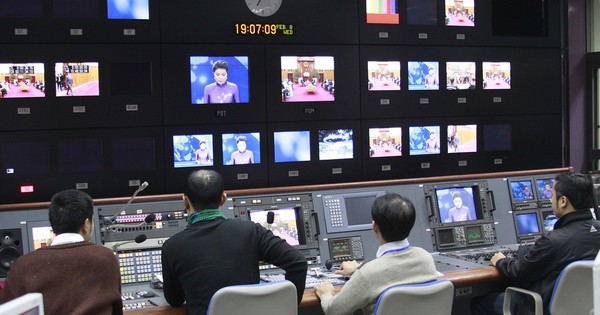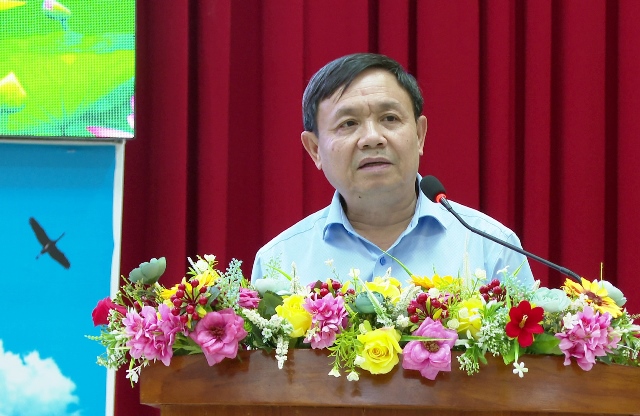Going into the challenging year of 2024, the world economy has not fully recovered from the heavy losses caused by the Covid-19 pandemic and "chronic" geopolitical and geo-economic conflicts around the world.
 |
| Opportunities and challenges intertwine to create a multidimensional picture of the world economy in 2024. (Source: Economy Middle East) |
The year 2024 marks a critical period for the global economy, as countries continue to face significant challenges and opportunities to accelerate recovery from the Covid-19 pandemic and previous economic crises. In a context of heightened geopolitical risks, natural disasters and a series of conflicts in many hotspots becoming barriers to growth, factors such as monetary policy, international trade and the transition to green and sustainable economies create a multi-dimensional picture of the world economy.
Geopolitical and geoeconomic "storm "
It can be seen that the world economy in 2024 has suffered many risks due to prolonged conflicts in Ukraine, the Middle East...; political instability in a series of major economies such as Germany, France, South Korea...; the rise of the right-wing and populist factions after the European parliamentary elections and some countries in the "old continent"; the return of billionaire Donald Trump and his "America First" policy, leading to the risk of a new trade war...
2024 is also a time when the trend of global market and technology fragmentation is becoming more evident, reflected in the expansion of the BRICS bloc and US sanctions, weakening international cooperation as well as the efficiency of global supply chains. These developments pose new challenges to global economic stability and growth.
The pace of economic recovery from the pandemic has been uneven across countries and regions. Global economic growth has been subdued, with developed regions such as the US and EU continuing to face high inflation, rising living costs and lingering effects from previous stimulus measures. Meanwhile, developing economies, particularly in Asia and Africa, have struggled to recover due to supply chain disruptions, political instability, policy adjustments by major countries and the impacts of climate change.
Another highlight in 2024 is that the monetary policies of central banks, especially the US Federal Reserve (Fed) and the European Central Bank (ECB), continue to have a strong influence on the global economy. Accordingly, after raising interest rates sharply in previous years to control inflation, these central banks are facing difficulties in maintaining tight monetary policies in the context of the global economy not yet fully recovered. High interest rate increases can lead to the risk of recession or slowing growth, making countries cautious in continuing to maintain this policy.
The ongoing Russia-Ukraine conflict has far-reaching implications for the global economy. The conflict is not only affecting European economies but also disrupting global supply chains, particularly in the energy, agricultural and metals sectors. Europe is working to diversify its energy sources and increase investment in renewable energy sources to reduce its dependence on Russia.
In addition, friction between major economies such as the US, China, the European Union, etc. continues to be tense, especially in the fields of high technology, semiconductors and finance. This not only increases instability in international trade but also leads to countries having to readjust their economic development and investment strategies.
Finally, climate change continues to be a major challenge for the global economy. In 2024, countries faced strong impacts from natural disasters and climate crises, requiring rapid implementation of emission reduction measures. This requires governments and businesses to invest more in environmental protection technology and policies, and prepare for the socio-economic impacts of climate change.
Leap Forward 2025
The Organization for Economic Cooperation and Development (OECD)'s December regular report forecasts global growth in 2024 at 3.1%, slightly lower than last year. According to the report, inflation will continue to decline, down to 4.6%, and will reach 3.5% in 2025. The International Monetary Fund (IMF) forecasts growth of 3.2%. Similarly, the United Nations, ADB, Fitch Ratings... all give optimistic figures.
The bright spot of the world economy in 2024 is the strong revival of international trade, increasing by more than 7%. According to Bloomberg's forecast, global trade will reach a record of 33,000 billion USD, an increase of 1,000 billion USD (equivalent to 4.3%) compared to 2023 and an all-time high. However, the global trade environment may soon change, even the risk of a trade war is imminent, when US President-elect Donald Trump takes office next month, along with risks from geopolitical tensions in many places around the world.
One of the most prominent trends in 2024 is the transition to a green and sustainable economy. Technology continues to play a central role in the transformation of the global economy. This change is not only related to cutting carbon emissions and developing clean technology, but also related to the transition in other areas, from renewable energy, clean transportation, sustainable agriculture...
The digital revolution, with the development of artificial intelligence (AI), blockchain and new technologies, is creating great opportunities for businesses and countries to develop new products, services and create innovative business models. However, AI is also changing the way we work and produce, forecasting to create leaps in economies.
Moving into 2025, analysts continue to forecast a complex “picture” with many challenges and opportunities intertwined, but still dependent on ongoing economic, political and social factors. Accordingly, experts believe that countries that are flexible in adjusting their strategies, taking advantage of emerging opportunities, such as artificial intelligence, combined with policy reforms to promote innovation and sustainability, can help minimize risks and ensure sustainable growth in a world that is forecasted to have many complex developments. Strengthening international cooperation, promoting free trade and multilateralization, along with flexible and adaptive economic policies, are considered the key to overcoming challenges and moving towards a more stable and sustainable economic future.
Source: https://baoquocte.vn/kinh-te-the-gioi-2024-vuot-ngan-chong-gai-297939.html



![[Photo] Looking back at the impressive moments of the Vietnamese rescue team in Myanmar](https://vstatic.vietnam.vn/vietnam/resource/IMAGE/2025/4/11/5623ca902a934e19b604c718265249d0)

![[Photo] "Beauties" participate in the parade rehearsal at Bien Hoa airport](https://vstatic.vietnam.vn/vietnam/resource/IMAGE/2025/4/11/155502af3384431e918de0e2e585d13a)
















![[Photo] Summary of parade practice in preparation for the April 30th celebration](https://vstatic.vietnam.vn/vietnam/resource/IMAGE/2025/4/11/78cfee0f2cc045b387ff1a4362b5950f)






























































Comment (0)